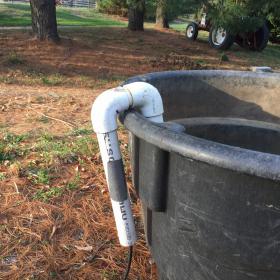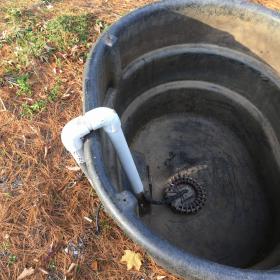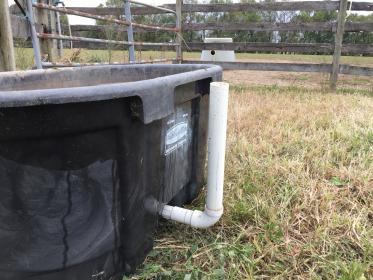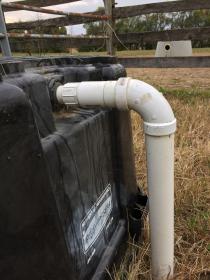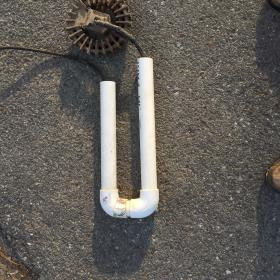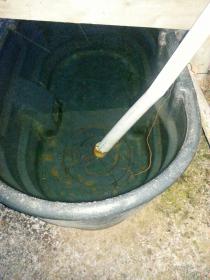FB and a LOT of forums, stuff on the internet in general is not to be believed.
I have read people saying horses have died from faulty water tank heaters. But I have tried number of times doing a search for the FACTS. Using a number of different search terms. I have yet to find a single article. As far as I am concerned it something is of concern it will come up on the fist page of a search if not a second. Anything after that is not to be trusted as “fact” and or is an anomaly.
Fact 1; A horse’s nose, lip are far more sensitive than ours. They can feel, detect stray voltage a LOT much easier than humans.
Fact 2: unless the horse falls into a large tank with a defective heater in it and CAN NOT get out. There is just no way it will die, be killed by submersion its head in the tank. Let alone be killed or injured “dipping” its mouth into a tank with a faulty heater.
Fact 3: A person can not be killed or even harmed by touching a live 120 volt low amp bare wire. The VAST majority of people will drop the wire instantly. Who hangs on to a hot fence wire?. Now, if the person has a heart condition, pace maker that may give a different out come.
The majority of the residential world is wired with 240 volt outlets, lighting etc. Twice the voltage that this country is “wired” with. With good reason, much more efficient use of generated power and distribution. Longer life span for the various electrical necessities found in every household. If this 120 is dangerous then 240 should be twice as dangerous. But we don’t read about people getting killed in other parts of the world anymore then we do in this country. When’s the last time anyone read about someone being killed by dipping their hand in a heated water tank? Toughing an frayed extension cord?
Yes, a person MAY get sapped enough to cause muscle contraction that doesn’t allow them to let go, drop the wire. But I think anyone would be hard pressed to find an article, an example of this happening with 120 low amp voltage. Feel free to provide links that represent more than the “exception.”.
I can state the above because I have done the personal research. I have more than a basic understanding of these things. I have done LOTS of wiring over the years. I have been zapped MANY times. It is a lot less “shocking” than touching a fence line hot wire. Granted a fence hot wire is designed to “pulse” off and on. A hot 120 wire does not.
Fact 4: GFCI are not really meant to be used in outlets outside, esp with tank heaters. They can be and are very problematic when used this way. I used to use them in weather proof boxes by my tanks. They were ALWAYS tripping. My wiring was sound, done correctly, grounds were correct and tested as so. There are reasons GFCI do this in this type of applications. Too lengthy for me to go into. Plenty of websites that go into complete detail to be had.
It always amazing me how paranoid people are of “electricity” wiring things in general. I suppose we have Edison to blame for that. When he publicly electrocuted an elephant to try an prove that his inefficient DC generated power system was safer than his former employee Tesla’s far superior AC distribution system It was VERY graphic and well publicized in its day. Fact is your 12 volt DC car battery can sap the crap out of you also. Fortunately for the consumer smarter people than the general public prevailed and told Edison to take a hike. The country, the world went with Tesla’s system. Edison died a rich man. Tesla died in a one room flop house, He was a great genius but unlike Edison he had no interest in money.
Working with residential “electricity’” is really quite simple and easy to learn what is needed to do it yourself for most if not all home owner applications. Fortunately for over paid electricians most people are too scared to learn. I learned a lot in my public grade school in the 60s. It was part of the curriculum along with shop, use of power tools etc.
Now, the short answer to the OPs question. It is simple to test for stray voltage using an inexpensive volt meter. They can be had at walmart. The instruction book should go into detail how to do it. If not plenty of internet websites that do and plenty of Utube vids to be had.
Every barn, home owner IMO should have a $7 outlet tester. You just plug it into the outlet and the read out will tell you if the line is wired correctly and the grounding is working correctly.
Personally I don’t use tank heaters without the wire running through PVC pipe to protect it from playful horses. Here are a couple of pictures that I have posted numerous times on the subject. A VERY easy DIY.
As always to each their one on these things. Believe what you want. [ATTACH=JSON]{“alt”:“Click image for larger version Name: IMG_0710.JPG Views: 2 Size: 18.8 KB ID: 9953962”,“data-align”:“none”,“data-attachmentid”:“9953962”,“data-size”:“full”}[/ATTACH]
[ATTACH=JSON]{“alt”:“Click image for larger version Name: IMG_0712.JPG Views: 1 Size: 18.9 KB ID: 9953963”,“data-align”:“none”,“data-attachmentid”:“9953963”,“data-size”:“full”}[/ATTACH]
[ATTACH=JSON]{“alt”:“Click image for larger version Name: IMG_0714.JPG Views: 2 Size: 20.7 KB ID: 9953968”,“data-align”:“none”,“data-attachmentid”:“9953968”,“data-size”:“full”}[/ATTACH]
This set up uses the drain plug on a rubber maid tank I also use a 90 elbow on the top of the out pipe and some more pipe to the ground. [ATTACH=JSON]{“alt”:“Click image for larger version Name: IMG_1166.JPG Views: 1 Size: 25.2 KB ID: 9953965”,“data-align”:“none”,“data-attachmentid”:“9953965”,“data-size”:“full”}[/ATTACH]
[ATTACH=JSON]{“alt”:“Click image for larger version Name: IMG_1168.JPG Views: 1 Size: 12.8 KB ID: 9953966”,“data-align”:“none”,“data-attachmentid”:“9953966”,“data-size”:“full”}[/ATTACH]
